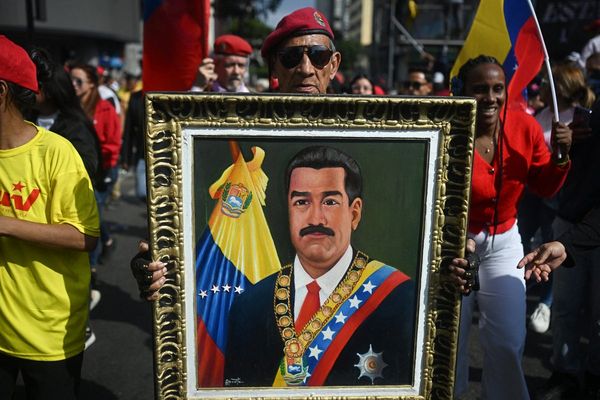A remote Aboriginal health service has abandoned a door-to-door vaccine drive after Western Australia's harsh border controls locked a key health worker out of the state.
Ord Valley Aboriginal Health Service's (OVAHS) mobile clinic truck helped boost lagging vaccination rates during December by visiting Indigenous communities around Kununurra and along the Northern Territory border.
The mobile clinic was seen as a crucial way of overcoming widespread vaccine hesitancy.
Only 60 per cent of Indigenous people in the Kimberley aged 12 and over are double dosed, compared with 90 per cent of all people in WA.
But at the beginning of January, the nurse who led the door-to-door service was stuck in the NT.
Her G2G was approved, but police at the Kununurra border checkpoint refused to let her pass.
OVAHS could not find another health worker to drive the mobile clinic and administer vaccines so the outreach ended.
The nurse had travelled to the NT in late December for Christmas, but in early January WA escalated the territory two categories up in less than a week to "extreme risk".
Nurse locked out despite health worker shortage
OVAHS general practitioner and acting senior medical officer Lida Fourie said hard border restrictions had also prevented a doctor based in the NT from taking up a position at the health service.
"It's had a significant impact. Our biggest challenge is staffing," Dr Fourie said.
While the February 5 border opening has been delayed indefinitely, on that date the government will ease entry protocols for specialist workers.
But Dr Fourie said she doubted the measure would solve the severe health worker shortage felt across the Kimberley while WA remained cut off from the rest of the nation.
"It does make it more complicated for people who come from interstate to think how they're going to manage seeing their family members back home," she said.
Premier Mark McGowan wants the third dose rate to reach above 80 per cent, a goal overstretched Kimberley health workers say will take considerable time.
"We're still encouraging people to come and get their second vaccination. So, at the very least, it's going to be three months before we see high rates of third vaccinations, " Dr Fourie said.
WA's Department of Health has been contacted for comment.







